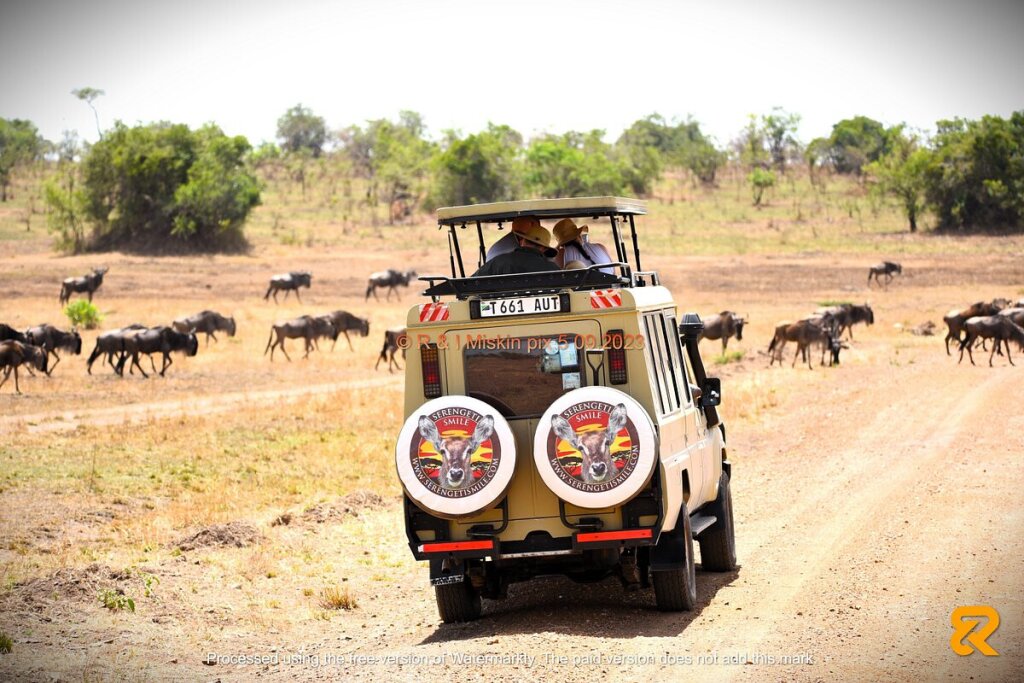Things To Know When Traveling To Tanzania in 2024
Welcome to Tanzania
Tanzania, located in East Africa, is a land of diverse landscapes, rich cultures, and abundant wildlife. From the majestic Serengeti plains to the iconic Mount Kilimanjaro, Tanzania offers travelers a remarkable adventure.
Top 13 Things To Know When Traveling To Tanzania
When to travel to Tanzania, there are a couple of important things you should keep in mind.
1. Visa and Travel Documents
Before embarking on your Tanzanian journey, it's crucial to check visa requirements. Depending on your nationality, you may need a visa to enter Tanzania. Ensure your passport is valid for at least six months beyond your intended stay.
2. Health and Vaccinations
Protect your health by consulting with a healthcare professional well in advance of your trip. While some vaccinations are required for entry into Tanzania, such as yellow fever, others, like malaria prophylaxis, are recommended. Additionally, practice good hygiene and drink bottled or purified water to prevent illness.
3. Currency and Money Matters
Tanzania's currency is the Tanzanian Shilling (TZS). It's advisable to exchange currency at banks or authorized exchange bureaus for the best rates. Credit cards are accepted in major cities and tourist areas, but it's wise to carry cash for transactions in more remote areas.
4. Language and Communication
Swahili is the official language of Tanzania, but English is widely spoken, especially in tourist areas. Learning a few basic Swahili phrases can enhance your experience and show respect for the local culture.
5. Weather and Climate
Tanzania experiences two main seasons: the dry season (June to October) and the wet season (November to May). The dry season is ideal for wildlife viewing and climbing Mount Kilimanjaro, while the wet season offers lush landscapes and fewer crowds.
6. Cultural Etiquette
Respect local customs and traditions by dressing modestly, asking permission before taking photos of people, and removing your shoes before entering someone's home. Greeting others with a handshake and a smile is customary in Tanzania.
7. Transportation
Getting around Tanzania is relatively easy, with options ranging from domestic flights to buses and taxis. While public transportation is available, renting a car or hiring a driver may offer more flexibility, especially for exploring remote areas.
8. Accommodation
From luxury lodges to budget-friendly guesthouses, Tanzania offers a range of accommodation options to suit every traveler's preferences and budget. It's advisable to book accommodation in advance, especially during peak tourist seasons.
9. Food and Drink
Sample traditional Tanzanian dishes like ugali (maize porridge), nyama choma (grilled meat), and pilau (spiced rice) for a taste of local cuisine. Be cautious when consuming street food and ensure that fruits and vegetables are thoroughly washed and cooked.
10. Safari and Wildlife
No trip to Tanzania is complete without a safari adventure. Explore world-renowned national parks like the Serengeti and Ngorongoro Crater to witness the Big Five and other iconic African wildlife in their natural habitat.
11. Cultural Attractions
Immerse yourself in Tanzania's rich cultural heritage by visiting historical sites like Stone Town in Zanzibar and the ruins of Kilwa Kisiwani. Participate in cultural tours and activities to gain insight into local traditions and customs.
12. Beach Destinations
After a thrilling safari experience, unwind on the pristine beaches of Zanzibar, Mafia Island, or the Tanzanian mainland. Enjoy snorkeling, diving, or simply basking in the sun on the white sands of the Swahili Coast.
13. Safety Tips
While Tanzania is generally a safe destination for travelers, it's essential to remain vigilant and take precautions against petty theft and scams. Avoid walking alone at night, especially in urban areas, and keep your belongings secure at all times.
Conclusion
When traveling to Tanzania, it is important to be aware of the country's diverse wildlife, stunning landscapes, and cultural traditions.
By following these essential tips and guidelines, you can ensure a safe, enjoyable, and memorable experience in this enchanting East African destination.
 EN
EN
 FR
FR
 IT
IT


